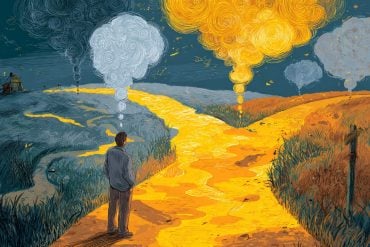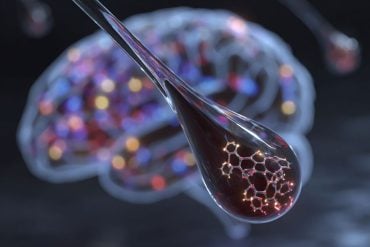Summary: Study reveals a bi-directional link between daytime napping and cognitive decline associated with Alzheimer’s disease. Researchers say longer, more frequent napping was associated with worse cognition after one year, and worse cognition was linked to longer and more frequent daytime naps.
Source: Rush University Medical Center
Could there be a link between cognitive decline and excessive daytime napping? New research from the Rush Alzheimer’s Disease Center suggests a potential connection, according to an article published in Alzheimer’s and Dementia.
The connection appears to occur in both directions, researchers say; longer and more frequent napping was correlated with worse cognition after one year, and worse cognition was correlated with longer and more frequent naps after one year.
Aron Buchman, MD, a neurologist at Rush University Medical Center and co-author of the article, said the study lends evidence to the changing views of Alzheimer’s disease as a purely cognitive disorder.
“We now know that the pathology related to cognitive decline can cause other changes in function,” he said. “It’s really a multi-system disorder, also including difficulty sleeping, changes in movement, changes in body composition, depression symptoms, behavioral changes, etc.”
Researchers followed more than 1,400 patients for up to 14 years as part of the Rush Memory and Aging Project and the Religious Order Study. Participants wore a wrist-worn sensor that recorded activity continuously for up to 10 days, and came in once a year for examinations and cognitive testing. Any prolonged period of no activity during the daytime from 9 a.m. to 7 p.m. was considered a nap.
When the study started, more than 75% of participants showed no signs of any cognitive impairment, 19.5% had mild cognitive impairment and slightly more than 4% had Alzheimer’s disease dementia.
Daily napping increased by about 11 minutes per year among those who didn’t develop cognitive impairment during follow-up. Naps doubled after a diagnosis of mild cognitive impairment, and nearly tripled after a diagnosis of Alzheimer’s disease dementia.
Researchers also compared participants who had normal cognition at the start of the study but developed Alzheimer’s disease dementia to their counterparts whose thinking remained stable during the study. They found that older people who napped more than an hour a day had a 40% higher risk of developing Alzheimer’s.
Buchman stressed that the study does not imply that napping causes Alzheimer’s dementia, or vice versa.
“This is an observational study, so we can’t say that ‘a causes b’,” he said. “But we can say that they unfold at the same time, and it’s possible that the same pathologies may contribute to both.”
Alzheimer’s disease is caused by the accumulation of two proteins, amyloid beta and tau, within the brain. While the decline in cognitive function is the most well-known symptom of Alzheimer’s disease, this protein accumulation can occur in various locations of the brain, brainstem and spinal cord, causing a variety of symptoms.

The study indicates that increases in the frequency and duration of daytime napping may be one of those symptoms.
“Once you’ve identified the pathology and location, you can work on potential treatments,” Buchman said. “There are proteins or genes that might prevent the accumulation of tau and beta, or there’s potentially ways to mitigate or slow their accumulation.”
The study was supported by the National Institutes of Health and the BrightFocus Foundation Alzheimer’s Research Program. Buchman said that one of the study’s primary strengths was its participant cohorts from the Memory and Aging Project and the Religious Order Study. Both studies are decades-long efforts that recruit participants to undergo annual testing, sample collection and organ donation after their death.
“The people in our studies are very special people,” he said. “Without people making this kind of contribution we wouldn’t be able to do the research that we do. They are so excited to be able to participate, they animate the staff with their participation. We’re very lucky to have them.”
About this Alzheimer’s disease research news
Author: Press Office
Source: Rush University Medical Center
Contact: Press Office – Rush University Medical Center
Image: The image is in the public domain
Original Research: Closed access.
“Daytime napping and Alzheimer’s dementia: A potential bidirectional relationship” by Peng Li et al. Alzheimer’s & Dementia
Abstract
Daytime napping and Alzheimer’s dementia: A potential bidirectional relationship
Introduction
Daytime napping is frequently seen in older adults. The longitudinal relationship between daytime napping and cognitive aging is unknown.
Methods
Using data from 1401 participants of the Rush Memory and Aging Project, we examined the longitudinal change of daytime napping inferred objectively by actigraphy, and the association with incident Alzheimer’s dementia during up to 14-year follow-up.
Results
Older adults tended to nap longer and more frequently with aging, while the progression of Alzheimer’s dementia accelerates this change by more than doubling the annual increases in nap duration/frequency. Longer and more frequent daytime naps were associated with higher risk of Alzheimer’s dementia. Interestingly, more excessive (longer or more frequent) daytime napping was correlated with worse cognition a year later, and conversely, worse cognition was correlated with more excessive naps a year later.
Discussion
Excessive daytime napping and Alzheimer’s dementia may possess a bidirectional relationship or share common pathophysiological mechanisms.







